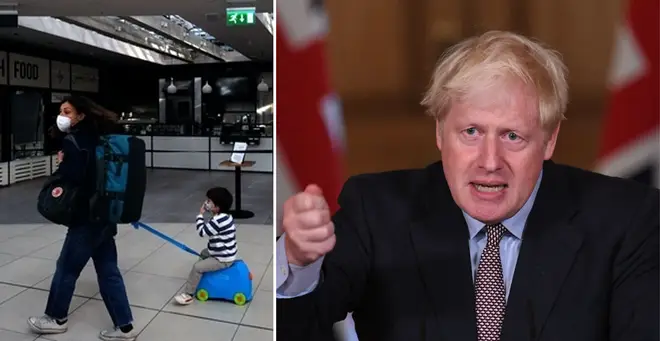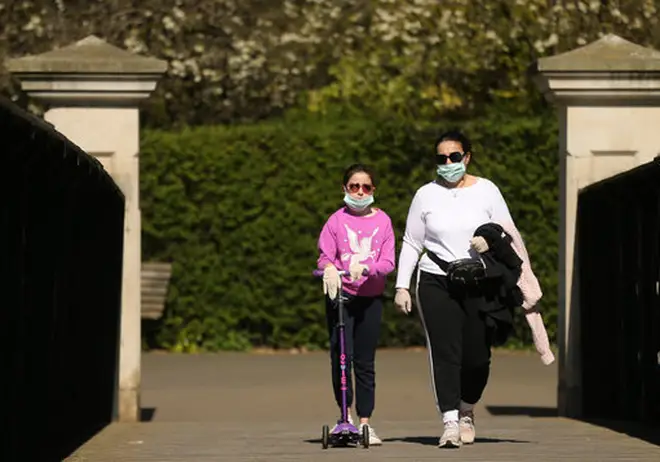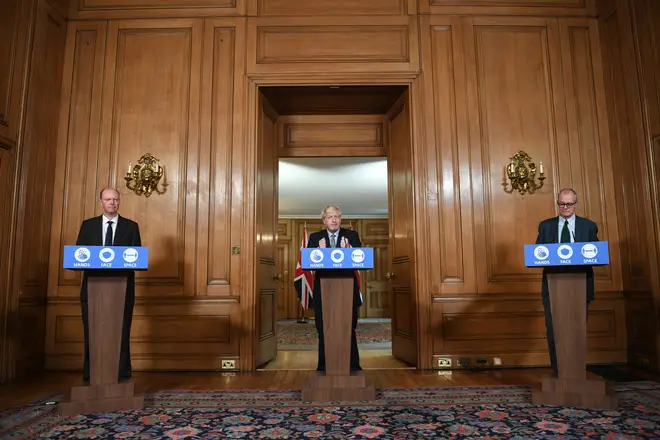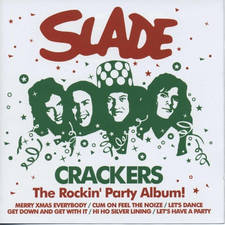Does the 'rule of six' apply to babies in England?
11 September 2020, 11:08

The 'rule of six' will prohibit social gatherings of seven or more - but does it apply to children and babies in England? Your need-to-know on the rule.
Earlier this week, the government introduced a new measure that will ban social gatherings of six or more people in England.
Prime Minister Boris Johnson announced that the 'rule of six' - which will come into force on Monday 14 September - will make it illegal to mix in groups of seven or more both indoors and outdoors.
It was introduce in response to a spike in coronavirus cases in the country, and the government has said it will continue for as long as necessary.
Read more: Animated graphic shows where coronavirus cases are rising in England
Rule flouters will face fines of £100, which could double up to £3,200 for repeat offenders.
Does the rule of six apply to babies and children in England?
There has been some confusion about whether babies and children are included in the rule in England, but it has been confirmed that it applies to all people of all ages - including babies.

Who is exempt from the rule?
There are a few exemptions to the rule - including in schools, workplaces and Covid-secure weddings.
Those in households and support bubbles with more than six people are also exempt.
The full list of exemptions are available here.
How long will the rule of six last?
The government haven't given an exact date on when the rule may end, but have said that there is no guarantee it will be over by Christmas.
Speaking at a Downing Street press conference yesterday, Prime Minister Boris Johnson said: He said: "Whether we are going to get things back to normal at all by Christmas, I'm still hopeful, as I've said before, that in many ways we could be able to get some aspects of our lives back to normal by Christmas.
"I talked just now about how you could do that.
"Through that Moonshot of daily testing - everybody gets a pregnancy-style test, a rapid turn-around test in the morning, 15 minutes later you know whether you are infectious of not.
"You may not know whether you are infected or not, but you know whether you are infectious, or not, and that gives you a kind of passport, a freedom to mingle with everybody else who is similarly not infectious in a way that is currently impossible."
Read more: What the new lockdown rules in England mean for shoppers at Sainsbury's, Tesco, Asda and Aldi
"We are aiming for that. We are driving for that.
"As I have said...we cannot be 100% sure that we can deliver that in its entirety."
Chief Medical Officer Chris Whitty and Chief Scientific Advisor Patrick Vallance, who were also present at the press conference, both warned that it may be optimistic to hope it will be over by Christmas.

Sir Patrick said that it was "completely wrong to assume this is a slam dunk that can definitely happen."
And Dr Whitty added that it's "important not to pin ourselves to a date".
Professor John Edmunds, a member of SAGE told ITV that Christmas poses a 'high risk'.

Heximap shows Covid-19 on the rise again in England
He added: "The epidemic continues to increase and then we have Christmas. And that is very difficult. What is Christmas?"Well, it's meeting with your family very close. Restaurants and pubs and stuff like that. It's all high risk, and it's all indoors."He added: "We can see the epidemic is taking off again. So I don't think we've hit that sweet spot where we've been able to control the epidemic and allow the economy to return to some sort of normality."
NOW READ:
Martin Lewis urges furloughed Brits to check their payslips as rules change






















